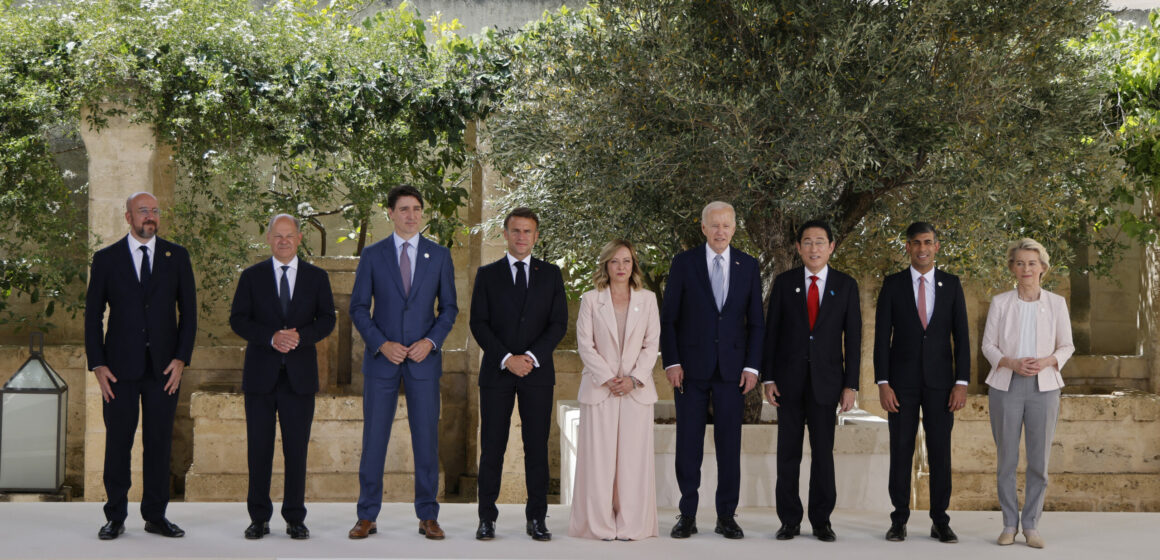The recent G7 summit in Italy has stirred significant debate over the omission of the term “abortion” from the final communiqué. Italian Prime Minister Giorgia Meloni has responded to the controversy, labeling it as “totally contrived.” This situation highlights the complex dynamics among the world’s leading economies when addressing sensitive issues like reproductive rights.
The G7, consisting of Canada, France, Germany, Italy, Japan, the UK, and the US, regularly discusses global issues and publishes joint statements. Last year’s summit in Hiroshima included a commitment to ensuring access to “safe and legal abortion” as part of comprehensive sexual and reproductive health and rights (SRHR).
In contrast, this year’s final statement only mentioned a general commitment to “universal access to adequate, affordable, and quality health services for women,” omitting specific references to abortion. This change has sparked a diplomatic rift, particularly between France, the US, and Italy.
Diplomatic Tensions Over Abortion
French President Emmanuel Macron and US President Joe Biden expressed concerns over the omission. Macron, who has advocated for enshrining the right to abortion in France’s constitution, voiced regret over the absence of explicit language on abortion in the G7 communiqué. He suggested that this reflects differing sensitivities within the G7 nations.
US officials, as reported by the New York Times, indicated that Biden resisted the exclusion of “abortion” and “reproductive rights” from the statement, highlighting the US commitment to these issues. The omission is seen as a step back from the progress made in last year’s Hiroshima summit.
Meloni’s Response
Prime Minister Meloni dismissed the controversy, explaining that the decision to omit specific references to abortion was procedural, aiming to avoid repetition in summit documents. She emphasized that the issue was not a point of contention among the G7 leaders, framing the debate as an external, manufactured controversy.
“It usually happens that in the final documents of these sessions, things that are already taken for granted are not repeated,” Meloni stated. She insisted that there was no significant disagreement at the summit itself.
Reactions and Implications
The reactions from Macron and Biden underscore the importance of clear commitments to reproductive rights. Macron criticized Meloni for allegedly using the G7 platform for political gain, particularly with upcoming elections in France. He expressed that France’s vision of gender equality is not universally shared across the G7.
Meloni countered this by stating it was “profoundly wrong” to politicize the G7 summit, maintaining that the absence of abortion references was a non-issue among the leaders.
The G7 summit’s debate over the omission of “abortion” from the final statement highlights the varying approaches to reproductive rights among the world’s leading economies. While leaders like Macron and Biden advocate for explicit commitments, Meloni’s administration prefers a more conservative stance.
This controversy emphasizes the need for continued dialogue and consensus on global issues like reproductive health. As the G7 moves forward, the differing perspectives on how to address and advocate for women’s rights will likely continue to shape discussions and policies.
In summary, the G7 summit in Italy has not only highlighted the importance of reproductive rights but also the diplomatic dynamics that influence global policy-making. The controversy serves as a reminder of the complexities involved in reaching international agreements on sensitive issues.

